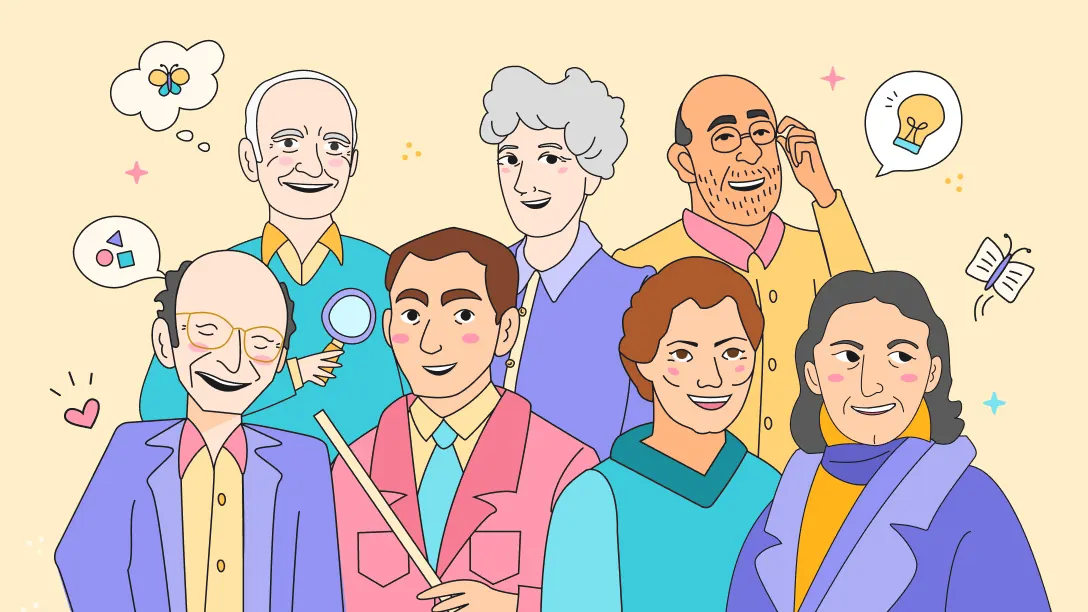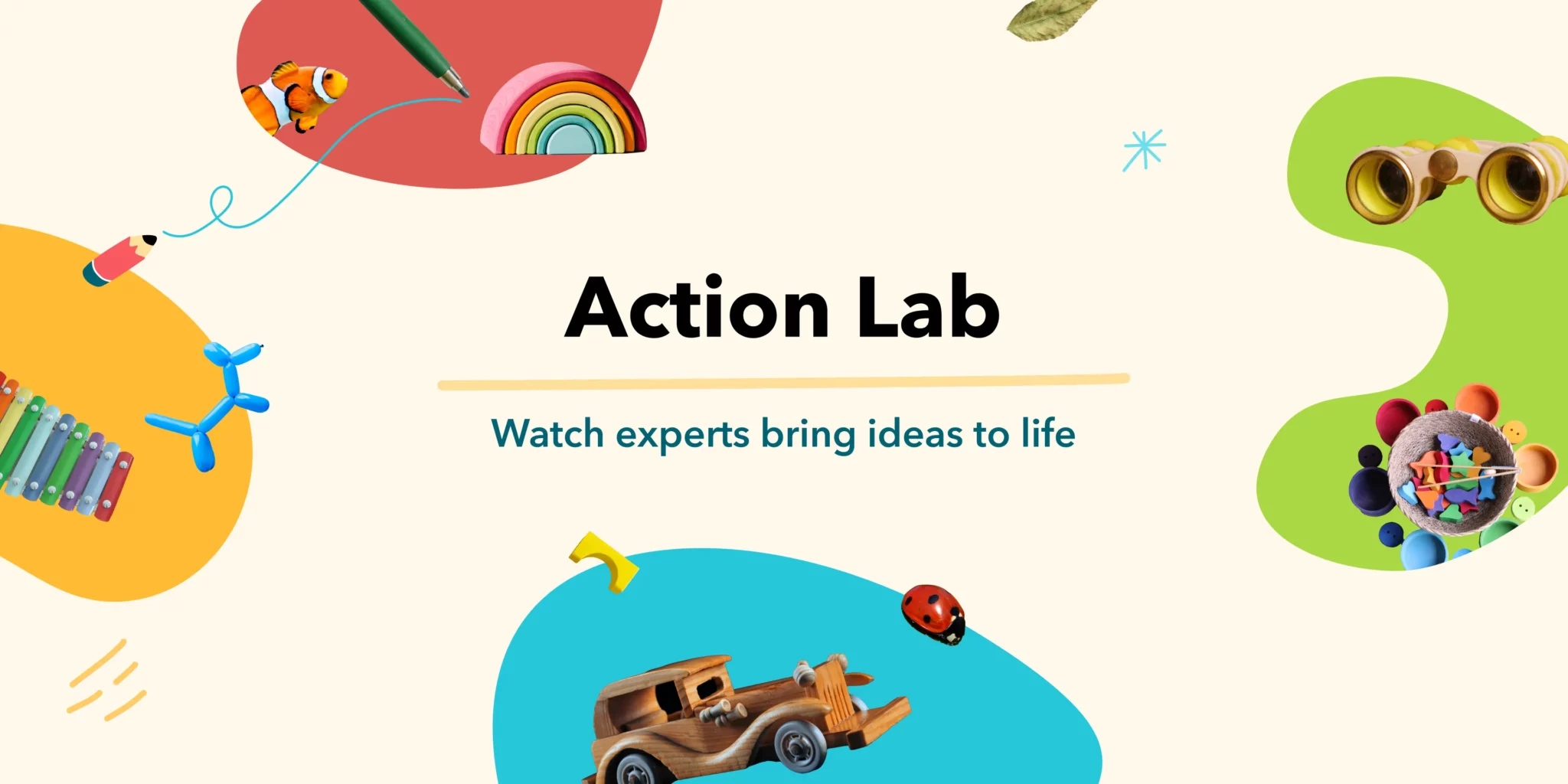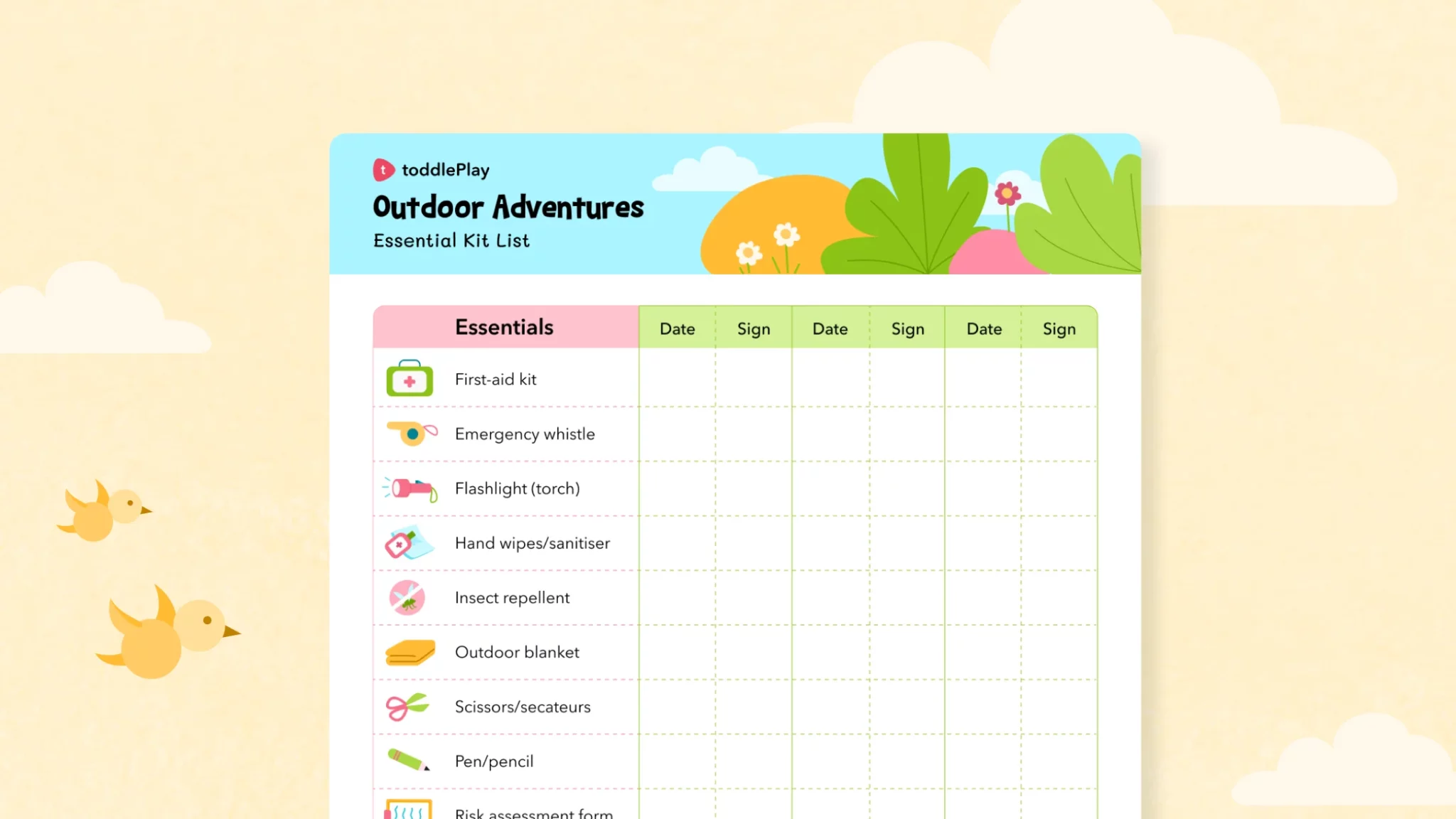The early years of childhood are not just a warm-up for the “real learning” that happens later; they’re the foundation of a lifetime’s journey in learning, health, and happiness. Visionary thinkers and pioneers in our world have completely flipped the script on early childhood education, transforming learning spaces into buzzing hubs of play-based learning. Every interaction becomes a chance for growth, and each space is meticulously designed with the unique needs and potential of each little learner in mind. This guide celebrates the big names who’ve led the charge, revolutionising the field with child-centered practices and motivating educators, parents, and policymakers to view early childhood education as a vital investment.
Let’s meet some of these pedagogical pioneers!
Urie Bronfenbrenner
Urie Bronfenbrenner invites educators to imagine a child as a seed surrounded by concentric circles, each representing crucial aspects of their life like family, school, and society. His ecological systems theory emphasises the interconnectedness of these circles, nurturing the child’s development in harmony. This innovative perspective encourages educators to be attentive gardeners, ensuring that every aspect of the child’s life is considered as they transition through various stages of school life. Bronfenbrenner’s work underscores the importance of a supportive community in fostering holistic growth and creating a strong sense of belonging in the early years setting. His legacy prompts us to consider the broader ecosystem in which children grow.
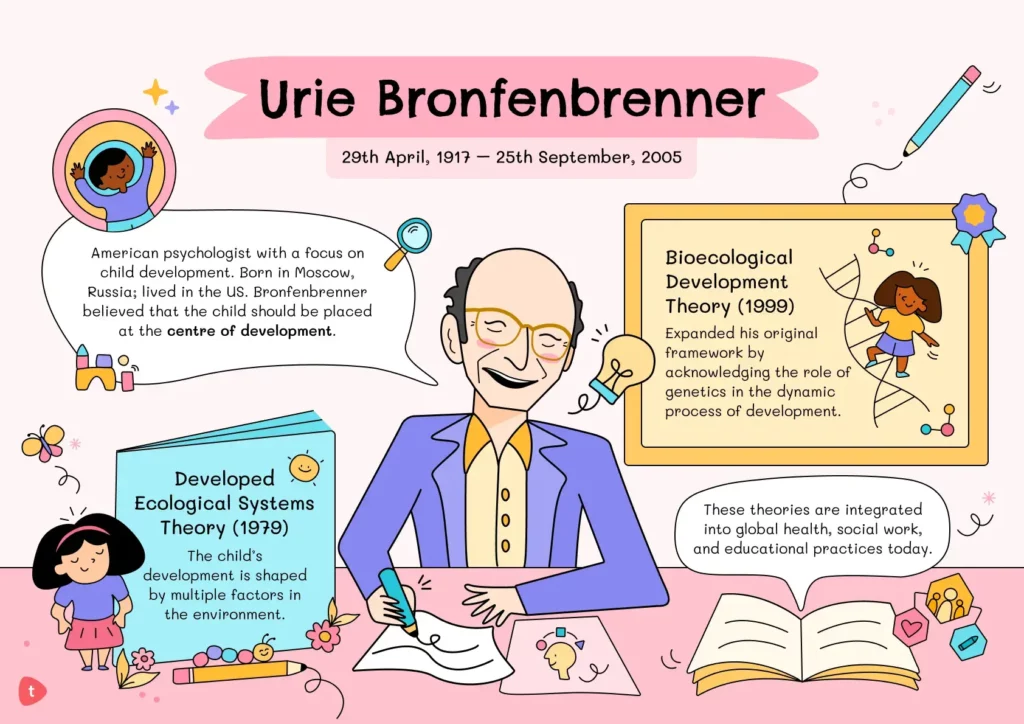

Loris Malaguzzi
Next, we explore the world of Loris Malaguzzi, the mind behind the Reggio Emilia approach—a revolutionary perspective on children’s learning environments. Malaguzzi stressed the importance of spaces that encourage curiosity, exploration, and interaction, transforming classrooms and outdoor areas into dynamic participants in the learning journey. His vision has inspired educators to create environments that engage and nurture young minds, making every corner a potential opportunity for learning and development. Through thoughtfully arranged spaces, children are invited into a world where creativity and discovery are fostered, showcasing the power of the environment in shaping educational experiences.
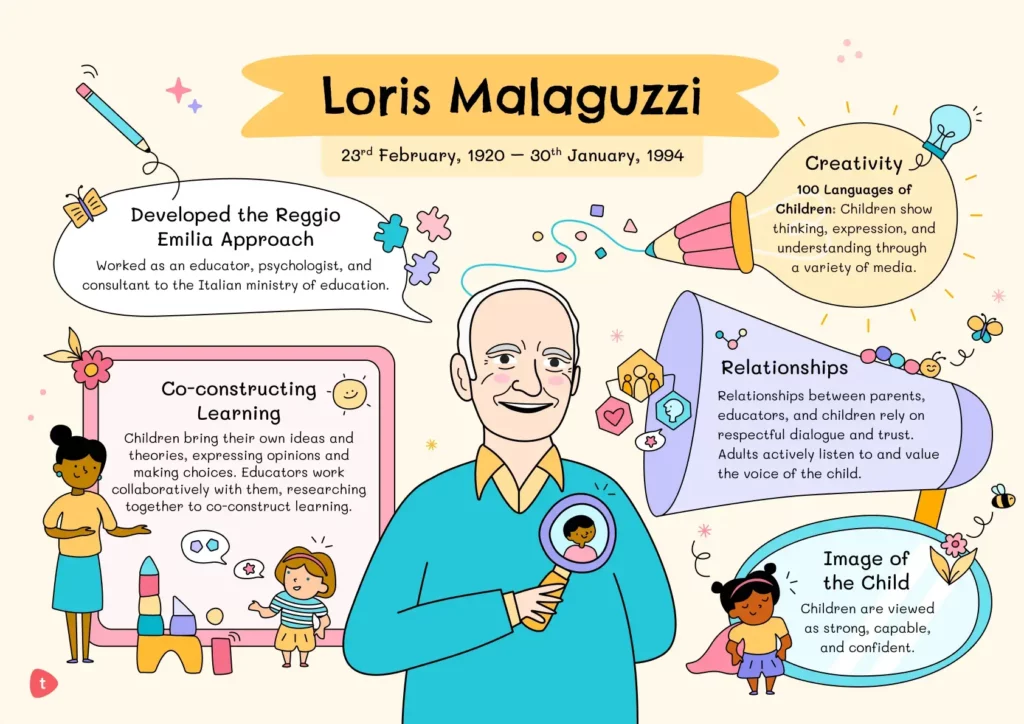
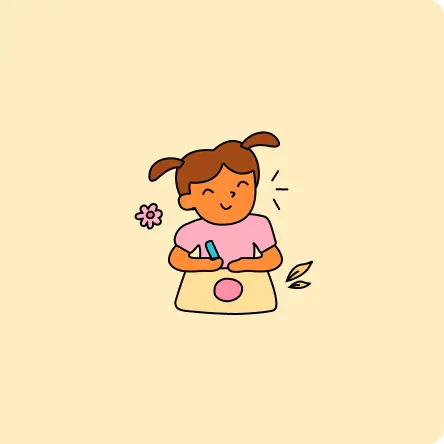
Lev Vygotsky
Step into Lev Vygotsky’s vision, where learning flourishes through social interaction and community connections. He championed the co-construction of knowledge, encouraging children and educators to use language and symbols to weave a shared tapestry of understanding. Vygotsky’s approach transforms classrooms into vibrant centres of connection, where learning is a visible journey of collaboration and celebration. Viewing education through his lens, we embark on a journey that makes thinking visible, leveraging cultural tools and relationships to support cognitive growth and development. This approach underscores the social and communicative essence of learning, deeply rooted in community values.
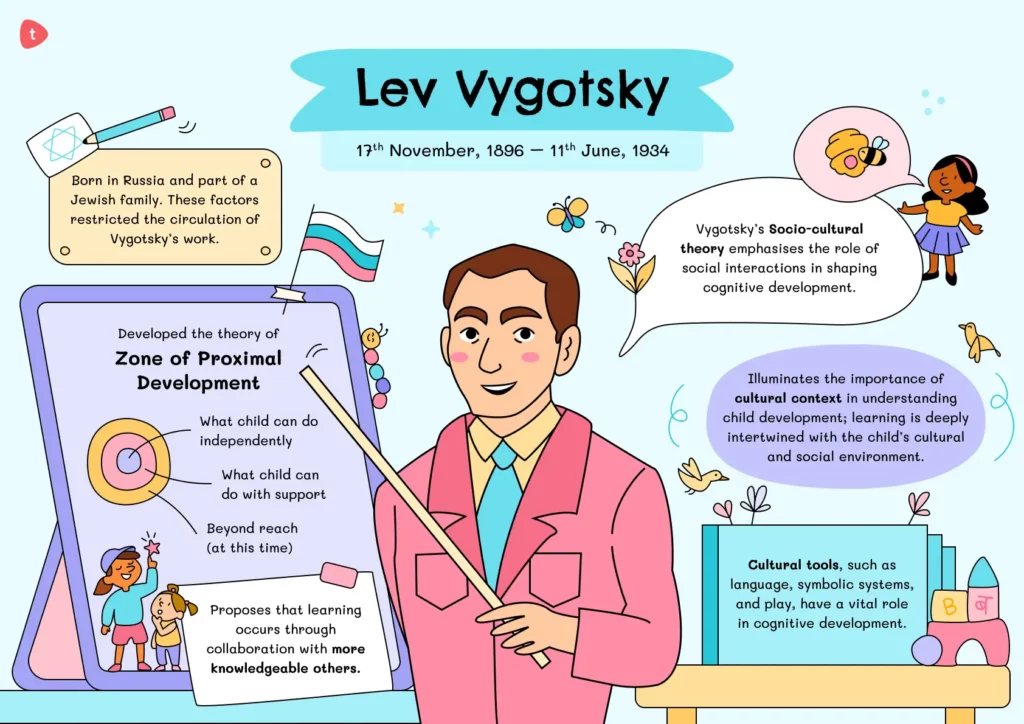
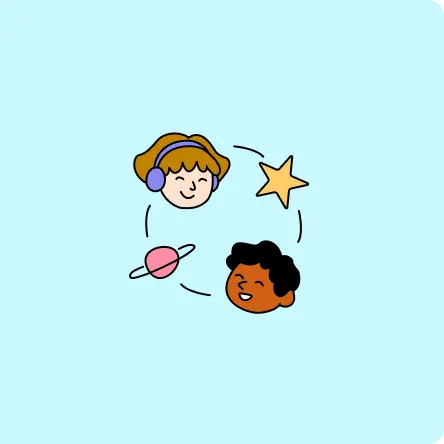
Margaret McMillan
Let’s dive into the world of Margaret McMillan, a trailblazer in early years education who championed the wonders of outdoor play. McMillan passionately advocated for children’s engagement with nature, believing it crucial for their development, health, cognitive growth, and overall well-being. Her legacy has inspired educators to prioritise outdoor exploration, fueling curiosity, discovery, and physical skills. Thanks to McMillan, the classroom extends beyond its physical boundaries, encouraging children to immerse themselves in the natural world.
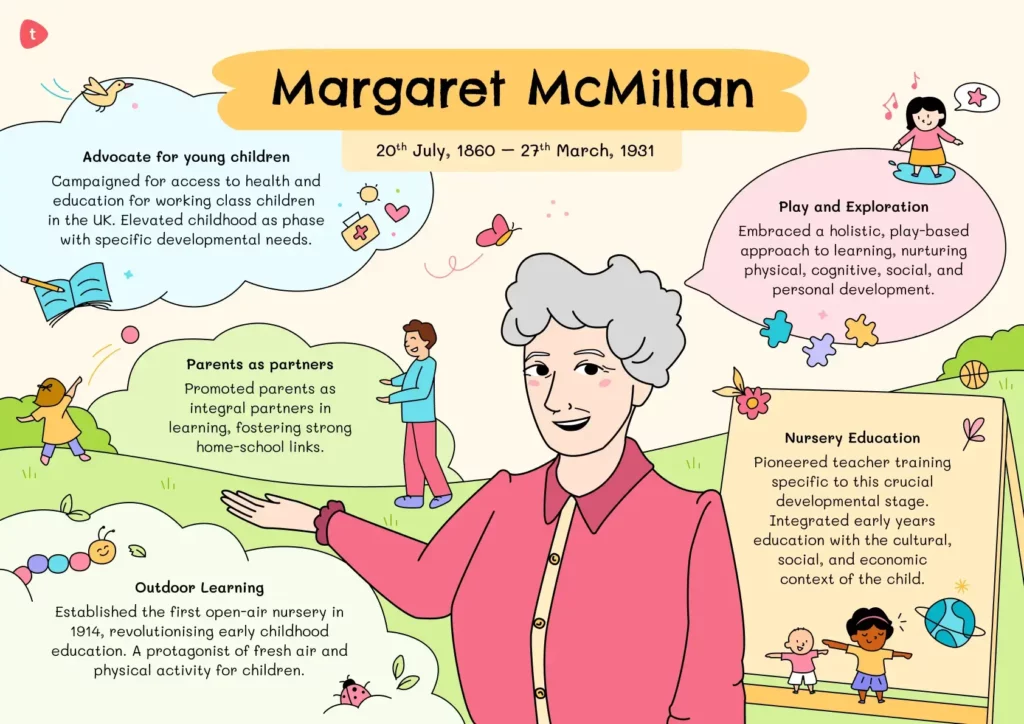
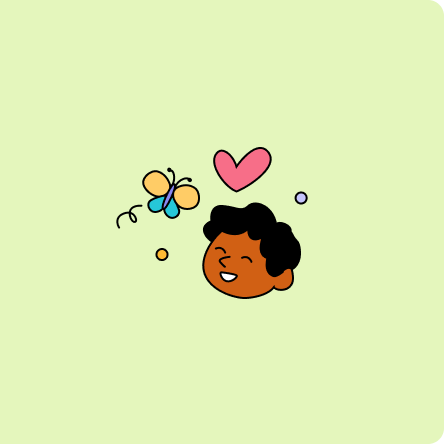
Bob Hughes
Meet Bob Hughes, renowned for his game-changing Taxonomy of Play. Hughes’s work provides a comprehensive playbook that categorises the diverse ways children play, highlighting the importance of each for their development. He guides educators in recognising the value of all play forms—from rough and tumble to imaginative and rule-based games—ensuring a holistic approach to play in early education. Hughes’s taxonomy has become a key tool for educators, emphasising play as a crucial element of learning and exploration.


Friedrich Froebel
Often hailed as the father of the kindergarten. Froebel’s pioneering work laid the groundwork for modern early childhood education with his concept of the kindergarten—a “children’s garden” where young learners could grow and develop in a nurturing environment. He believed in the intrinsic value of play and designed a series of educational toys known as “Froebel’s Gifts” to stimulate learning through hands-on experiences. Froebel’s philosophy emphasised the importance of self-activity, creativity, and social participation, elevating children as active participants in their own learning journey. His ideas continue to profoundly influence early years education, promoting a holistic approach that integrates cognitive, physical, and emotional development. Today, educators continue to draw inspiration from Froebel’s vision, creating playful and engaging learning environments that honour each child’s natural curiosity and potential.


Maria Montessori

Let’s explore the transformative contributions of Maria Montessori, a pioneering force in early childhood education. Montessori’s approach centres on the belief that children are naturally eager for knowledge and capable of initiating learning in a supportive, thoughtfully prepared environment. She introduced the Montessori method, characterised by self-directed activity, hands-on learning, and collaborative play. Montessori classrooms are designed with carefully curated materials that encourage exploration and discovery, allowing children to develop at their own pace. Her emphasis on independence, respect for a child’s natural psychological development, and the importance of a prepared environment has redefined educational practices worldwide. Montessori’s legacy lives on in classrooms where children thrive through self-motivated learning, fostering a lifelong love of discovery and a deep sense of autonomy. Her work continues to inspire educators to create environments that nurture each child’s potential, promoting holistic growth and development.


